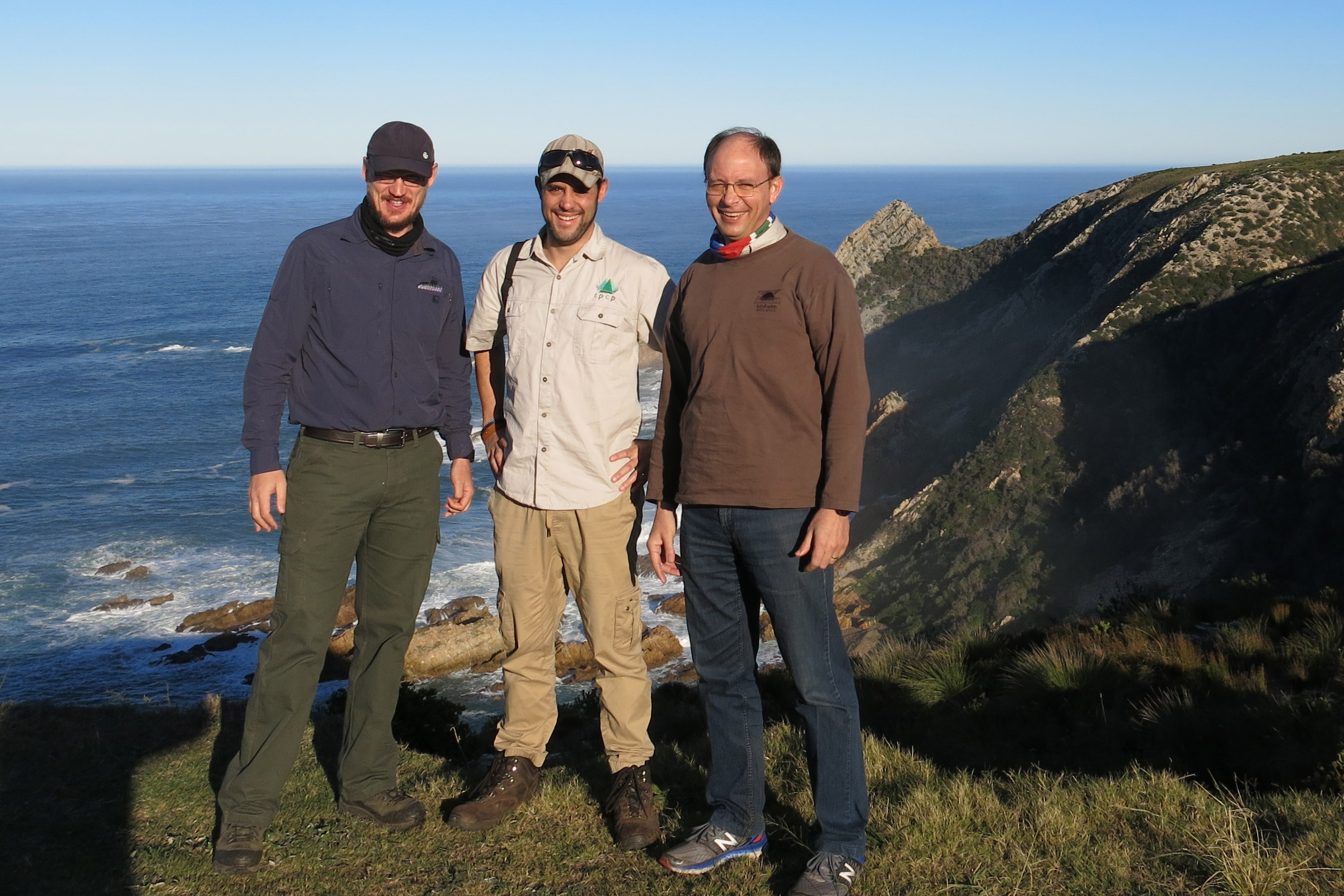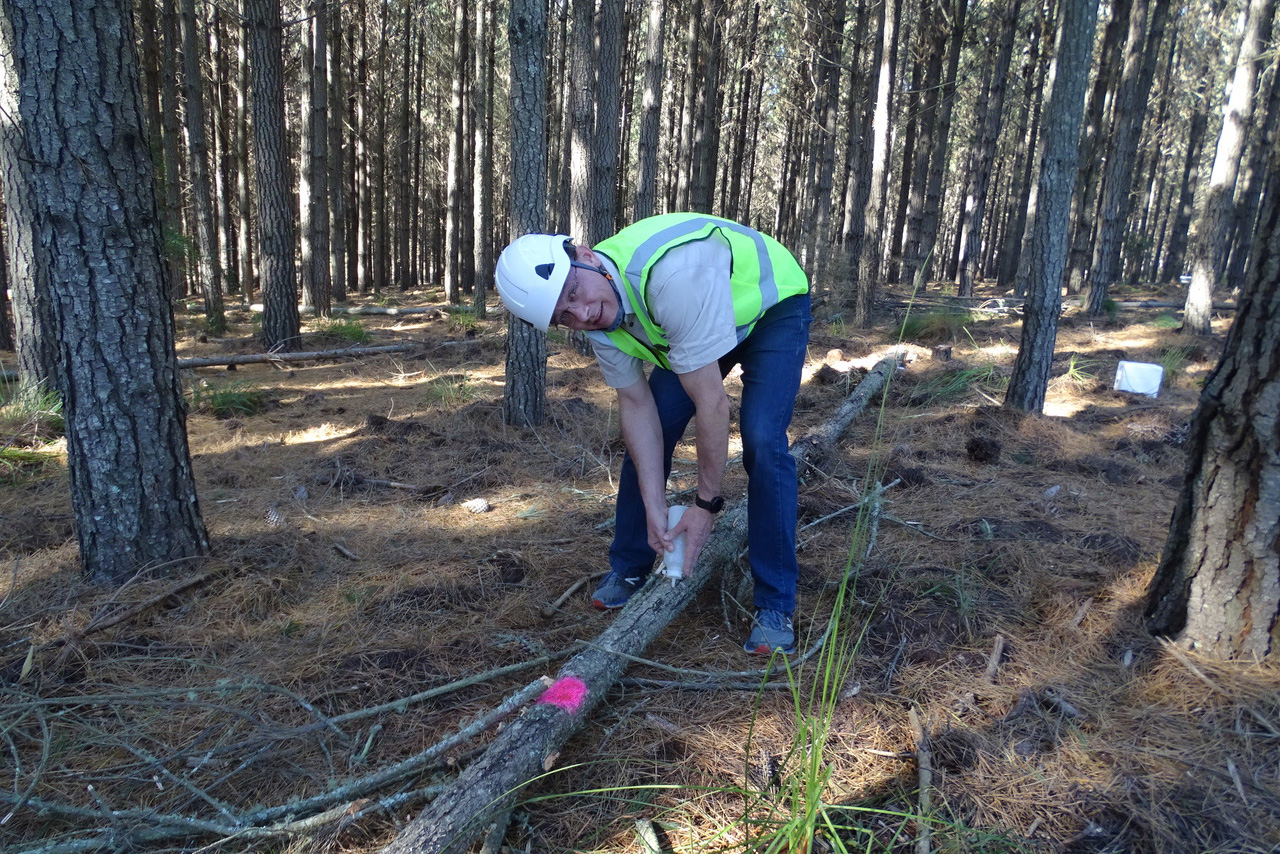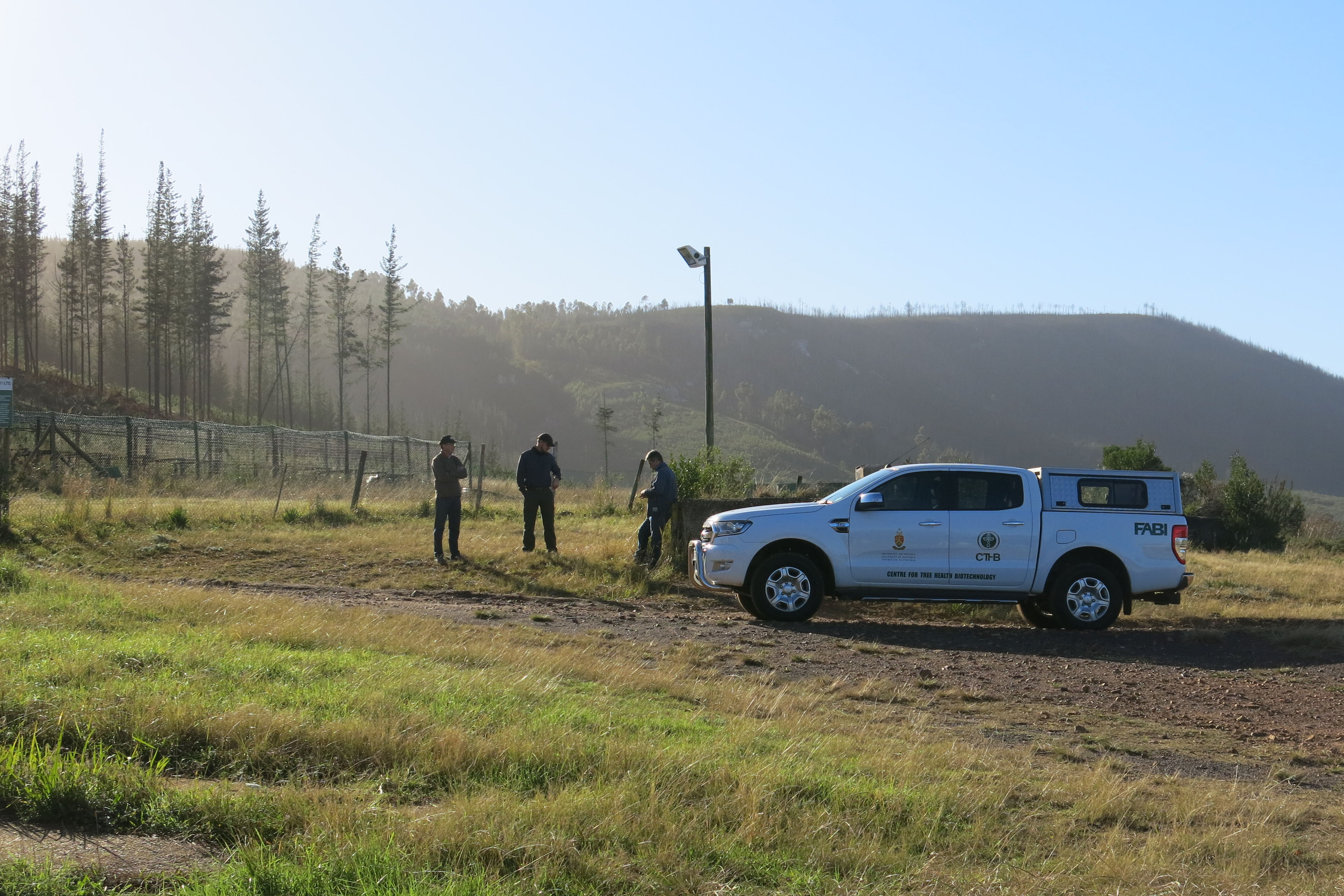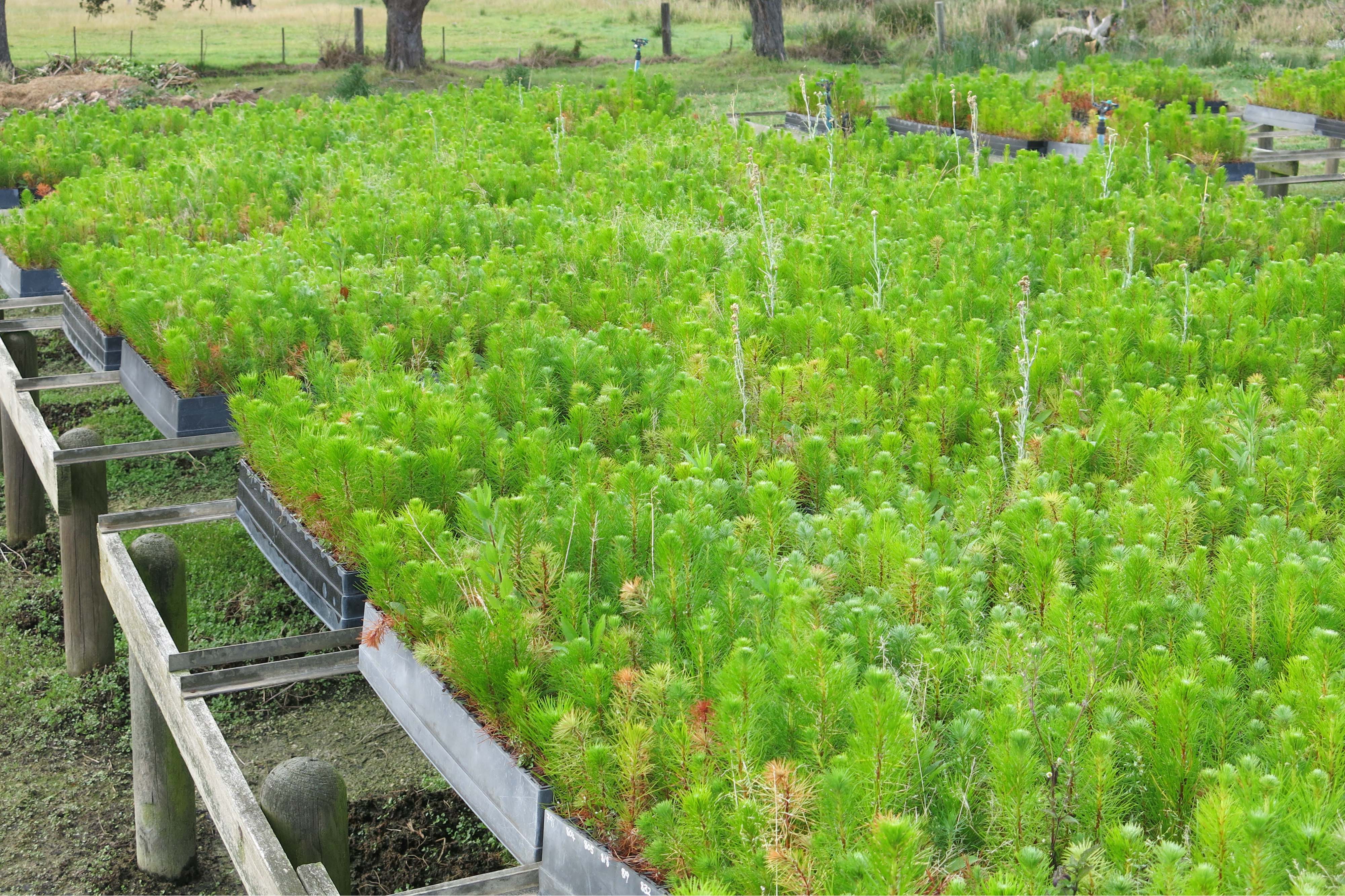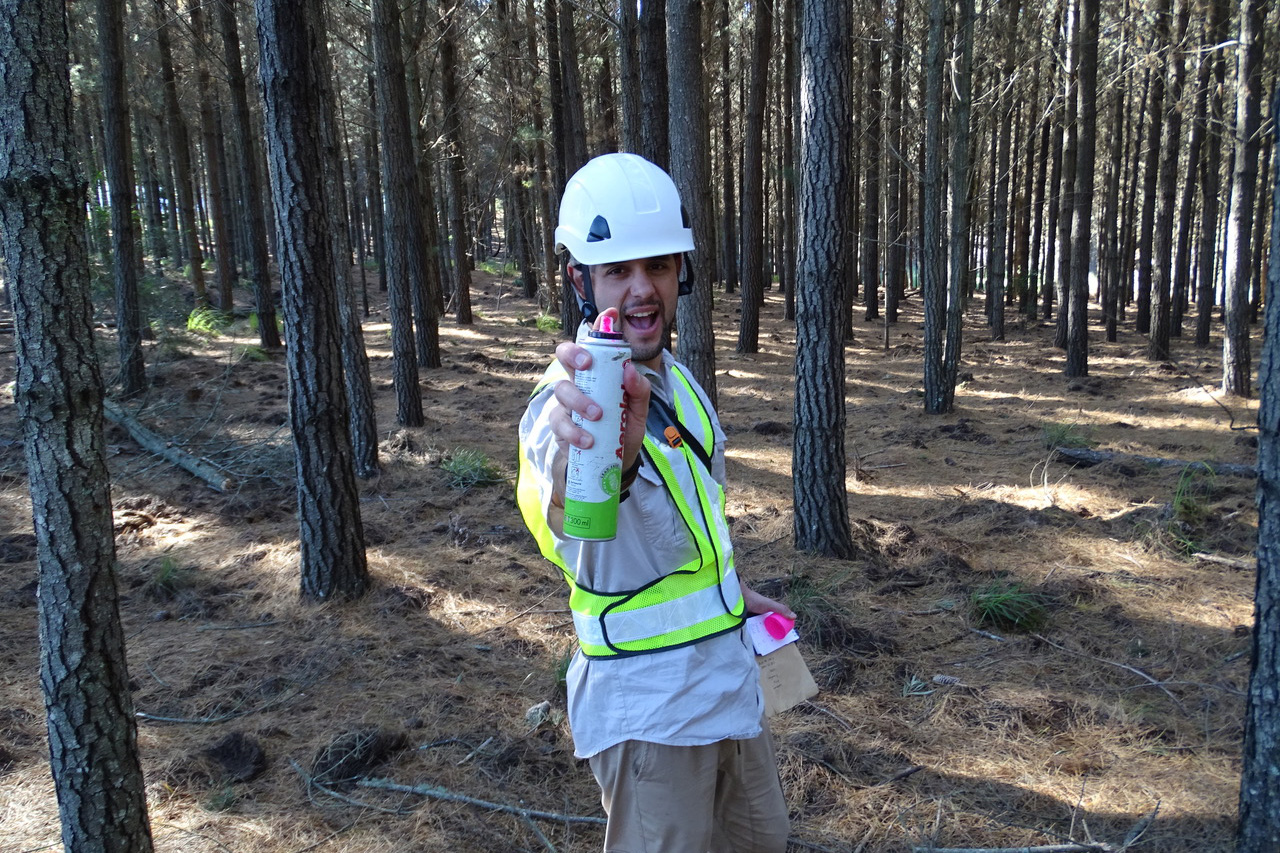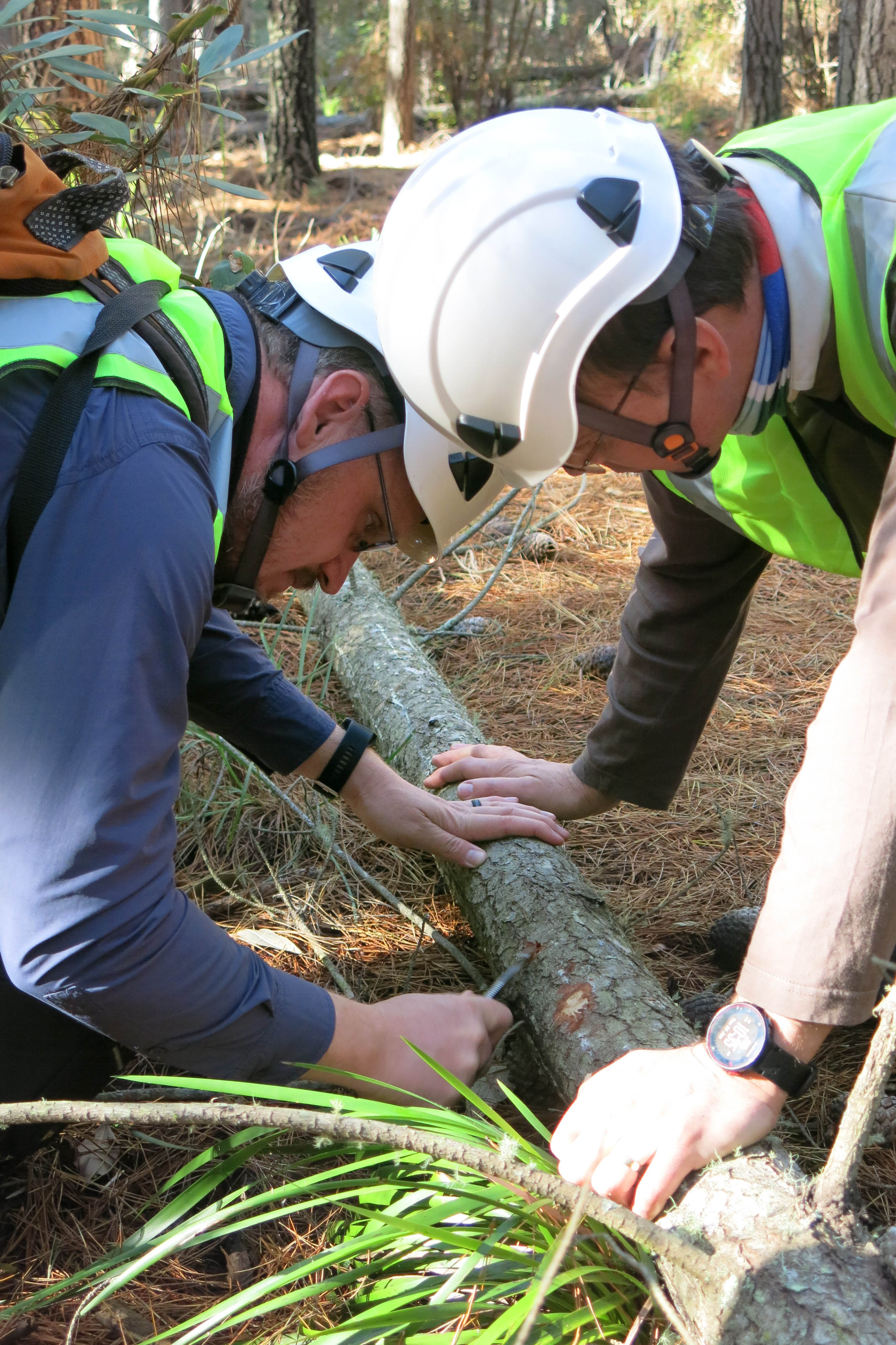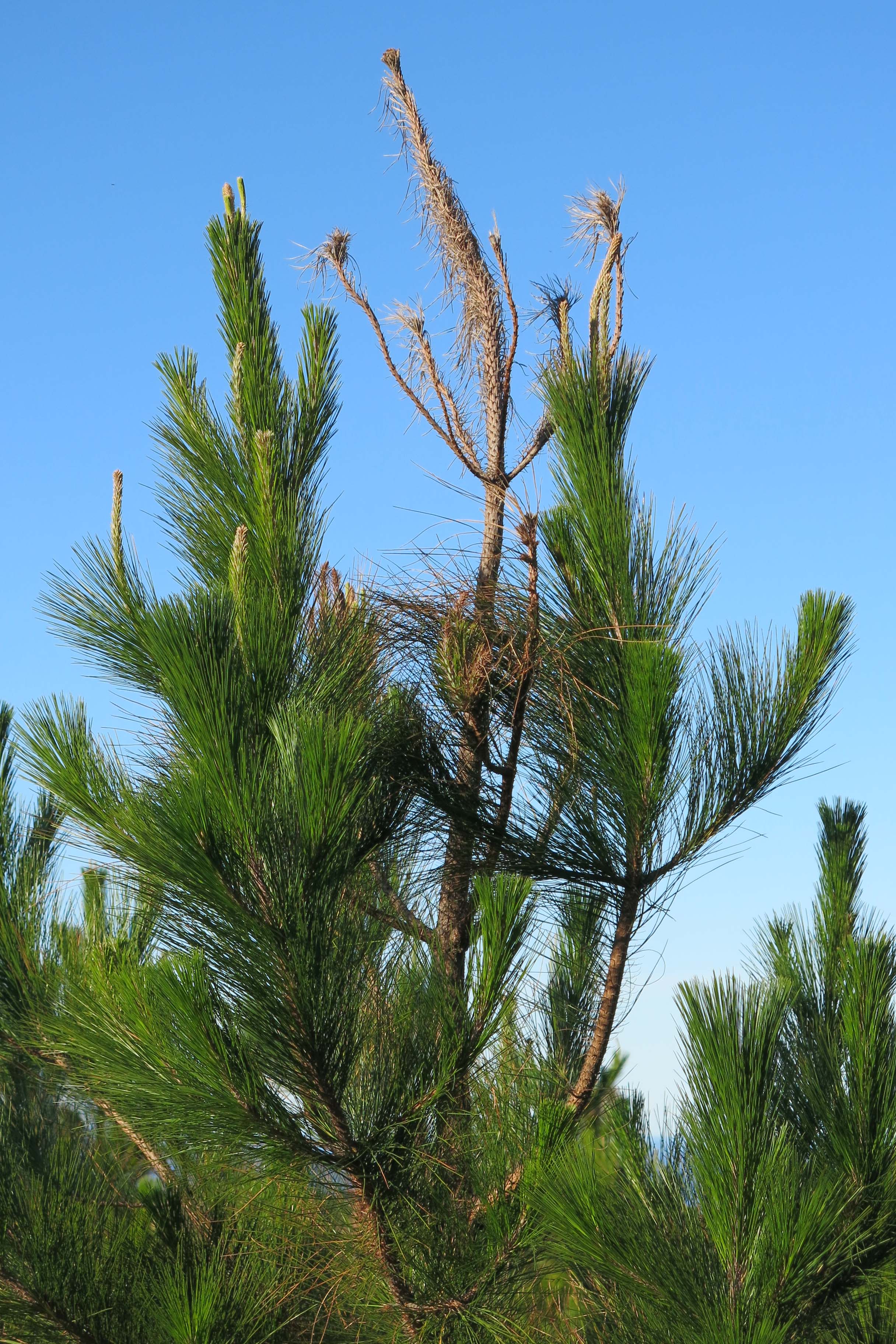Fieldwork during a pandemic 2020-07-17
FABI Director, Prof. Bernard Slippers along with Prof. Brett Hurley and Darryl Herron embarked on a field trip to the southern Cape during the week of 29 June. The purpose of the trip was to inoculate Sirex infested pine trees with different strains of nematodes for a biocontrol trial. Four nematode strains, including a new strain from Australia, were selected to be trialled on 30 Pinus radiata trees on MTO's Lottering plantation outside Plettenberg Bay. We are hoping that the newly-tested Australian strain will show improved parasitism over our current biocontrol strains.
Ensuring that the Institute can continue with its research activities with the support of our stakeholders is key to maintaining the University-Industry partnerships as we continue to deal with the economic fallout from the COVID-19 pandemic. FABI’s activities are listed as an essential service which means we can continue with our research under the current lockdown restrictions. This trip was therefore perfectly timed after more than 100 days of lockdown, offering a welcome break from Zoom meeting fatigue, being stuck behind a computer at home and working in labs filled with the smell of ethanol and hand sanitiser.
FABI has implemented very strict protocols to help keep our staff and students safe. This has restricted the number of field trips and people going into the field. This trip serves as an example of how we can adapt to maximise the use of time available in the field. Although focused on Sirex, we had some time available to conduct other essential research and extension work. Cheyenne Theron, a MSc student in FABI asked us to look out for the pine needle pathogen, Lophodermium. We took some time in between the nematode inoculations to scour the forest floor for any symptomatic needles.
A visit to an MTO plantation to look at some needle damage on young P. elliottii. We were also shown older Pinus elliottii x caribaea that were attacked by the pine weevil, Pissodes. We then visited a stand of seven year oldP. maximinoii along the N2 toward Wilderness, where a few trees have started to die-back and even die. We aren't sure of the cause but we will return with the tree breeder and a chainsaw operator to fell some of them for a closer look.
The next stop was at Ezigro Seedlings' nursery in Karatara to collect seedlings, water and seed samples. This is a historic nursery for the industry and the Tree Protection Co-operative Programme (TPCP) as it is one of the last few that actually still grow Pinus radiata in South Africa.
The last stop was in George to visit some compartments of P. radiata on the outskirts of the city that are standing on exit land. These compartments, previously managed by private forestry companies, have been abandoned while the Government ponders their future. The lack of management in the interim has made the trees a risk to health and safety - there are huge fire concerns for the neighbourhoods flanking these stands and for the safety of visitors who walk beneath them. Because of the state of the compartments, we will likely see a number of pests and pathogens moving in, which threatens commercial forestry in the region and the rest of the country.
A special thank you to MTO for allowing us to do the biocontrol trial on their land and to Theo, Christian, Francois, Cassie, Donovan and Braam for showing us around and helping us in the field.


